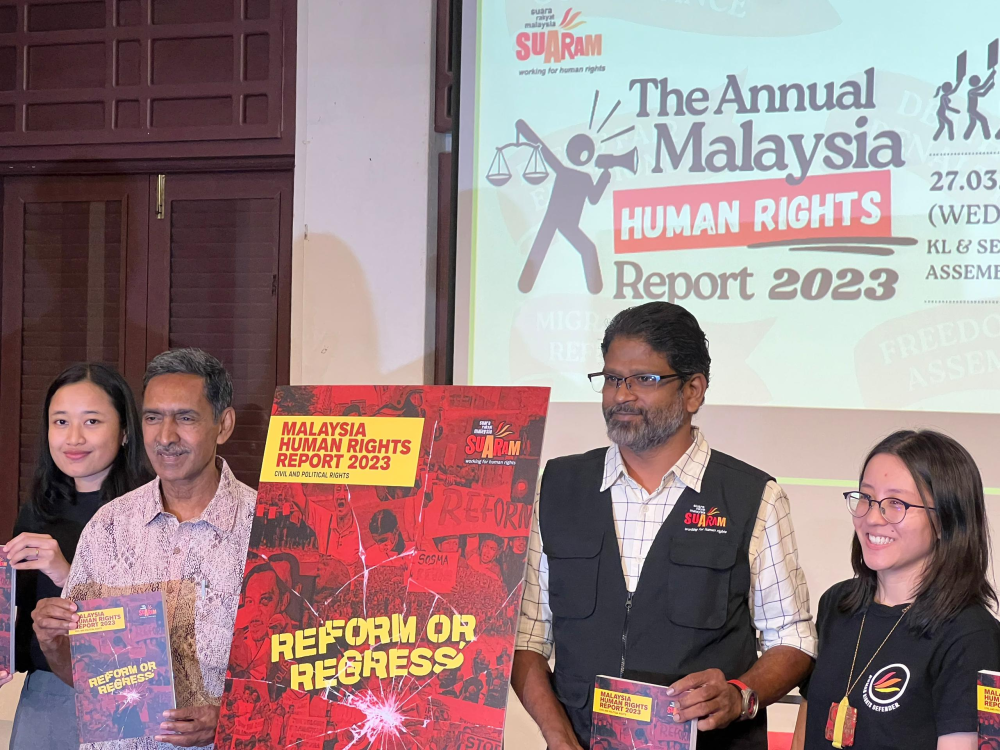Sedition, Communications Acts still being used to curtail 'freedom of expression'

KUALA LUMPUR - The Sedition Act 1948 and the Communications and Multimedia Act 1998 (CMA) are still being used by the federal administration to curb freedom of expression, says Suara Rakyat Malaysia (Suaram).
In its latest Human Rights Report 2023, Suaram disclosed that there were 28 cases reported under the Sedition Act, marking a 65 per cent increase compared to the previous year, while 97 cases were reported under CMA.
The watchdog noted that the figures under the Sedition Act had risen to the level seen during the Perikatan Nasional administration in 2021.
"More explicit measures such as warnings by members in government and the setting up of an investigation task force were implemented to exercise tighter control over discourse related to race, religion and royalty.
"Of the 24 cases still under investigation, all but two involve at least Section 233 of the CMA in addition to Section 4(1) of the Sedition Act.
"The said exceptions involved the remark by Pas president questioning the authorisation of the Pardons Board during a political talk held in conjunction with the Simpang Jeram by-election and a civilian’s remarks that the government is pro-Israel," the report said.
Suaram had also in the report revealed that out of four cases, three which took place in 2023 involved opposition politicians and were brought to court.
"The aforementioned three cases comprised slightly over 10 per cent of cases occurring in 2023 that met the threshold for them to be charged in court.
"This proportion is significantly reduced to less than two per cent of the 960 cases under the Sedition Act 1948 investigated by the government between 2010 and Sept 2023," it said.
Suaram said the wide gap between investigation and prosecution rates, in reality, demonstrated arbitrary application of the law to stifle freedom of speech.
The application of the act, it said did not reflect the government’s consideration of confining the scope of the legislation’s application to 'insults' against royalty, which consisted of only just over 40 per cent of cases.
Meanwhile, Suaram executive director Sevan Doraisamy said there was a double standard with freedom of assembly in Malaysia, particularly concerning police responses to events like the Women’s March and Palestine-related rallies.
"When it comes to anything that the government supports or organises, it’s always facilitated overwhelmingly," he said.
The Women’s March Malaysia held annually to celebrate International Women’s Day on March 8 and advocate for gender rights has encountered difficulties in organising its activities.
The organiser if the event revealed that their applications to hold the event were declined four times by the Dang Wangi police, without any explanation provided for these refusals.














